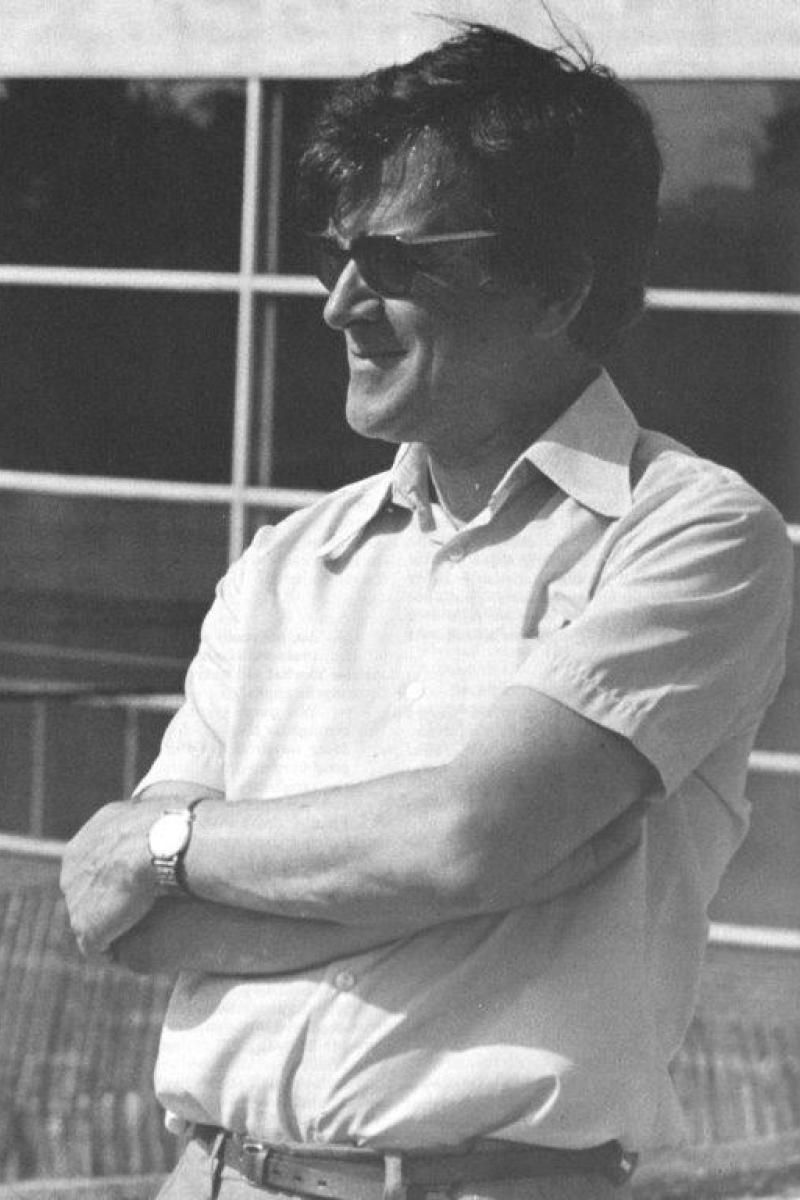Disrupting the Pattern 2023
Peter's Bequest
Peter's Impact
Peter's legacy is to provide bursary funding to Trinity students studying modern languages in the Sixth Form. We work closely with the Head of Modern Languages to identify students at school on substantial, means tested bursaries, studying modern langauges at A Level. Peter's passion as a teacher was for German, and we prioritise support for bursary students studying it. Would you like to find out more or make a pledge to join our Mitre Society?

Peter Marshall
Peter Marshall taught German and Latin at Trinity School from 1968 until his sudden death in 1984.
His brother, David, donated a sum of money to the Trinity Bursary Fund to allow a bursary, the Peter Marshall Bursary, to be awarded to an outstanding student who is pursuing GCSE or A-level German.
This generous donation in memory of his brother, showed just how much former staff as well as students, are attached to the school. Current teacher and Old Boy, Bill Tucker, remembers Peter fondly: “The school experiences that shape us are, for most, an extraordinary mix. Peter’s examples of kindness, professionalism and commitment as a tutor were significant ingredients in the potent cocktail that I was fortunate enough to enjoy. He would be both embarrassed and delighted to know that the bursary fund now provides a means by which the generous principles he espoused, can be given a new lease of life in his name”.
One of Peter’s closest teaching colleagues was Tom Grundy, who commented in the school magazine in 1984 saying: “I remember his many kind generosities – the Black Forest Gateau with which he rewarded his Sixth Form for good work in examinations, for mediocre work and, yes! – for bad work too. All shared alike.
I remember the laughs we used to have on the various continental holidays, mainly over a glass of frothy German beer.
As the swimming results and times were brought to the recording table with chaotic speed and indistinct articulation, it was he who made order out of chaos, armed only with an unflappable manner and a large bag of wine-gums. When the Cross-Country team ran in Richmond Park, he used to come there to lend support. His very appearance would be the signal for all the team to break loose from what they were doing, and to run and crowd round him as if he were a long-lost uncle not seen for many a year.
Shortly after his death, one student said to me;
“He was a real gentleman” and another, “He was a lovely fellow”.
Is there any better way to be remembered?”